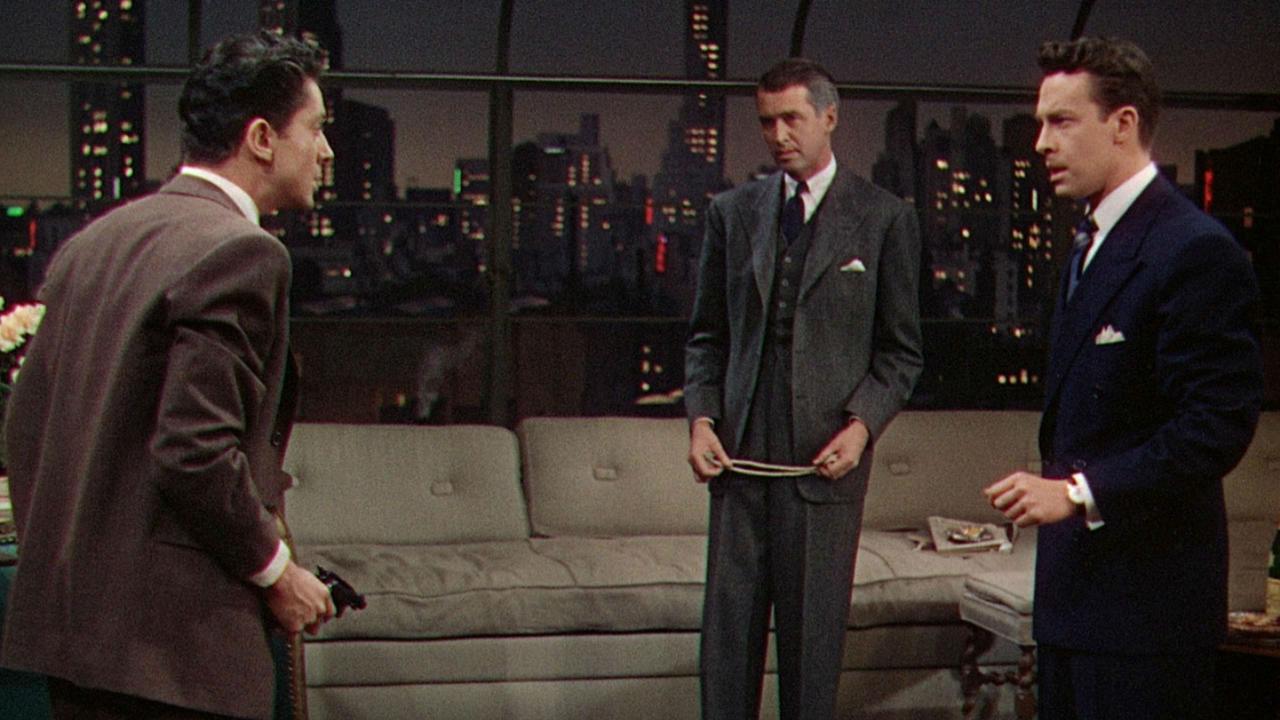Movies You Might Have Missed: Alfred Hitchcock's Rope
The first of Hitchcock's Technicolour films stars James Stewart, who felt he was miscast in a role that was originally intended for Cary Grant

Inside No 9 returned to our screens this week, the dark anthology series written by and starring Reece Shearsmith and Steve Pemberton of The League of Gentlemen. Each story is linked solely by the fact that it takes place at a number 9, a decision inspired by a single setting episode of Psychoville, the pair’s previous series. The genesis of that episode was Alfred Hitchcock’s Rope (1948), a remarkable work and undoubtedly one of the director’s most innovative pictures.
The film stars James Stewart in his Hitchcock debut and is based on the 1929 play of the same name. It is the first of the auteur’s Technicolor films and is best known for being edited together to resemble one continuous take. In reality, each shot ran for 10 minutes without interruption, since this was the maximum amount of film that a camera magazine could hold. Devoid of close-ups and filmed exclusively on a single set, Rope is an incredibly audacious film for a big-name director working with major stars.
The plot is based on the infamous Leopold-Loeb case, in which two college friends murdered another of their number purely for the aesthetic thrill. The protagonists in Rope commit the murder in the film’s opening moments and hide the body in a wooden chest before hosting a dinner party. Will they get away with it? More significantly, will Hitchcock?
Cary Grant was the director’s first choice to play the supercilious ex-schoolteacher and it’s not hard to see why. Up to that point, Stewart was renowned exclusively for his warmth and sunny demeanour, yet the role proved his versatility and did his career the world of good. Despite this, the actor maintained he’d been miscast and was unhappy with his work here.
Critics have been divided on Rope over the years. The long, protracted takes do have a certain alienating effect on the audience and yet the technique seems ideally suited to the material: what better way to adapt a play for the big screen? The nihilistic script, courtesy of Hume Cronyn and Arthur Laurents, is light years ahead of its time in its caustic examination of morally bankrupt and pretentious sociopaths. The heavily implied homosexuality of the murderers saw the film banned in a number of American cities and the movie was unavailable for rights reasons for several decades. These days Rope is more easily accessible and worth seeking out, it is one of the more intriguing gems in the Hitchcock canon.
Join our commenting forum
Join thought-provoking conversations, follow other Independent readers and see their replies
Comments